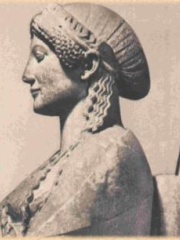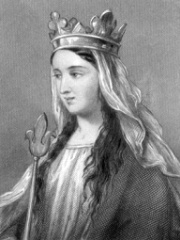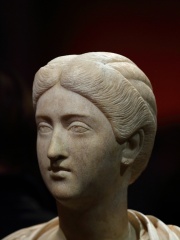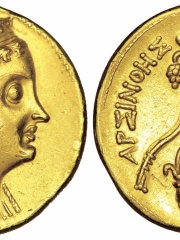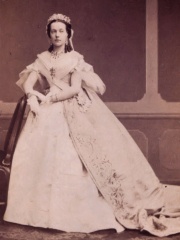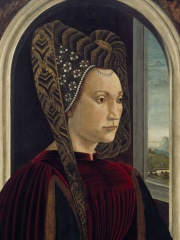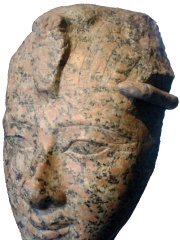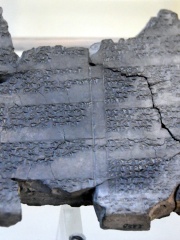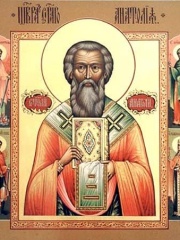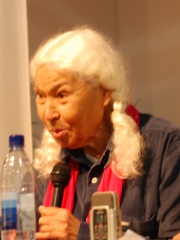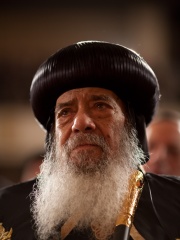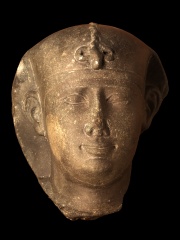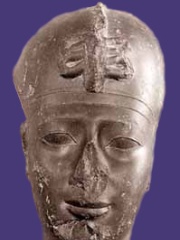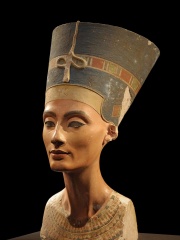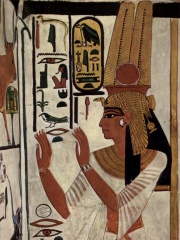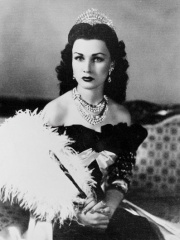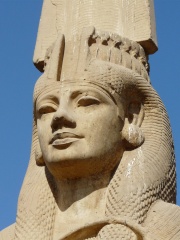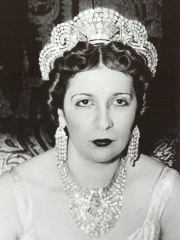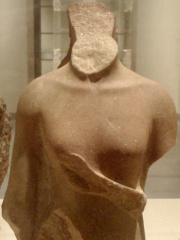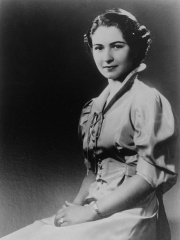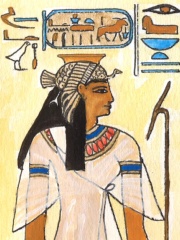Companion
Tjuyu
1401 BC - 1370 BC
EN.WIKIPEDIA PAGE VIEWS (PV)
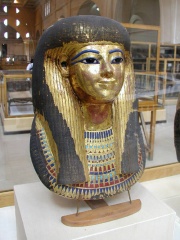
 Tjuyu
Tjuyu
Her biography is available in 25 different languages on Wikipedia (up from 23 in 2024). Tjuyu is the 200th most popular companion (up from 376th in 2024), the 143rd most popular biography from Egypt (up from 236th in 2019) and the 6th most popular Egyptian Companion.
Memorability Metrics
Page views of Tjuyu by language
Among Companions
Among companions, Tjuyu ranks 200 out of 784. Before her are Gorgo, Queen of Sparta, Archduchess Maria Johanna Gabriela of Austria, Matilda of Flanders, Mary, Crown Princess of Denmark, Bruttia Crispina, and Arsinoe II. After her are Maria Christina of the Two Sicilies, Clementia of Hungary, Joan the Lame, Marie Henriette of Austria, Geraldine of Albania, and Clarice Orsini.
Most Popular Companions in Wikipedia
Go to all RankingsGorgo, Queen of Sparta
506 BC - 500 BC
HPI: 70.31
Rank: 194
Archduchess Maria Johanna Gabriela of Austria
1750 - 1762
HPI: 70.29
Rank: 195
Matilda of Flanders
1031 - 1083
HPI: 70.25
Rank: 196
Mary, Crown Princess of Denmark
1972 - Present
HPI: 70.22
Rank: 197
Bruttia Crispina
164 - 191
HPI: 70.18
Rank: 198
Arsinoe II
316 BC - 270 BC
HPI: 70.16
Rank: 199
Tjuyu
1401 BC - 1370 BC
HPI: 70.15
Rank: 200
Maria Christina of the Two Sicilies
1806 - 1878
HPI: 70.07
Rank: 201
Clementia of Hungary
1293 - 1328
HPI: 70.00
Rank: 202
Joan the Lame
1293 - 1349
HPI: 69.98
Rank: 203
Marie Henriette of Austria
1836 - 1902
HPI: 69.97
Rank: 204
Geraldine of Albania
1915 - 2002
HPI: 69.95
Rank: 205
Clarice Orsini
1453 - 1488
HPI: 69.93
Rank: 206
Contemporaries
Among people born in 1401 BC, Tjuyu ranks 2. Before her is Amenhotep II. Among people deceased in 1370 BC, Tjuyu ranks 1. After her is Arnuwanda I.
Others Born in 1401 BC
Go to all RankingsAmenhotep II
POLITICIAN
1401 BC - 1401 BC
HPI: 71.80
Rank: 1
Tjuyu
COMPANION
1401 BC - 1370 BC
HPI: 70.15
Rank: 2
Others Deceased in 1370 BC
Go to all RankingsTjuyu
COMPANION
1401 BC - 1370 BC
HPI: 70.15
Rank: 1
Arnuwanda I
POLITICIAN
1500 BC - 1370 BC
HPI: 62.73
Rank: 2
In Egypt
Among people born in Egypt, Tjuyu ranks 143 out of NaN. Before her are Al-Aziz Uthman (1171), Anatolius of Constantinople (301), Mohamed Al-Fayed (1929), Al-Suyuti (1445), Arsinoe II (-316), and Claudian (370). After her are Nawal El Saadawi (1931), Mohamed Salah (1992), Pope Shenouda III of Alexandria (1923), Nectanebo II (-400), Theon of Alexandria (335), and Apries (-650).
Others born in Egypt
Go to all RankingsAl-Aziz Uthman
POLITICIAN
1171 - 1198
HPI: 70.51
Rank: 137
Anatolius of Constantinople
RELIGIOUS FIGURE
301 - 458
HPI: 70.46
Rank: 138
Mohamed Al-Fayed
BUSINESSPERSON
1929 - 2023
HPI: 70.34
Rank: 139
Al-Suyuti
RELIGIOUS FIGURE
1445 - 1505
HPI: 70.22
Rank: 140
Arsinoe II
COMPANION
316 BC - 270 BC
HPI: 70.16
Rank: 141
Claudian
WRITER
370 - 404
HPI: 70.15
Rank: 142
Tjuyu
COMPANION
1401 BC - 1370 BC
HPI: 70.15
Rank: 143
Nawal El Saadawi
POLITICIAN
1931 - 2021
HPI: 70.13
Rank: 144
Mohamed Salah
SOCCER PLAYER
1992 - Present
HPI: 70.08
Rank: 145
Pope Shenouda III of Alexandria
RELIGIOUS FIGURE
1923 - 2012
HPI: 70.03
Rank: 146
Nectanebo II
POLITICIAN
400 BC - 343 BC
HPI: 70.02
Rank: 147
Theon of Alexandria
MATHEMATICIAN
335 - 405
HPI: 70.00
Rank: 148
Apries
POLITICIAN
650 BC - 567 BC
HPI: 69.90
Rank: 149
Among Companions In Egypt
Among companions born in Egypt, Tjuyu ranks 6. Before her are Nefertiti (-1400), Nefertari (-1290), Ankhesenamun (-1347), Fawzia Fuad of Egypt (1921), and Arsinoe II (-316). After her are Meritamen (-1400), Nazli Sabri (1894), Meketaten (-1348), Farida of Egypt (1921), Alia Al-Hussein (1948), and Bintanath (-1300).
Nefertiti
1400 BC - 1330 BC
HPI: 87.28
Rank: 1
Nefertari
1290 BC - 1255 BC
HPI: 79.56
Rank: 2
Ankhesenamun
1347 BC - 1400 BC
HPI: 77.52
Rank: 3
Fawzia Fuad of Egypt
1921 - 2013
HPI: 72.31
Rank: 4
Arsinoe II
316 BC - 270 BC
HPI: 70.16
Rank: 5
Tjuyu
1401 BC - 1370 BC
HPI: 70.15
Rank: 6
Meritamen
1400 BC - 1300 BC
HPI: 69.06
Rank: 7
Nazli Sabri
1894 - 1978
HPI: 68.27
Rank: 8
Meketaten
1348 BC - 1338 BC
HPI: 67.38
Rank: 9
Farida of Egypt
1921 - 1988
HPI: 66.98
Rank: 10
Alia Al-Hussein
1948 - 1977
HPI: 66.71
Rank: 11
Bintanath
1300 BC - 1300 BC
HPI: 65.76
Rank: 12
